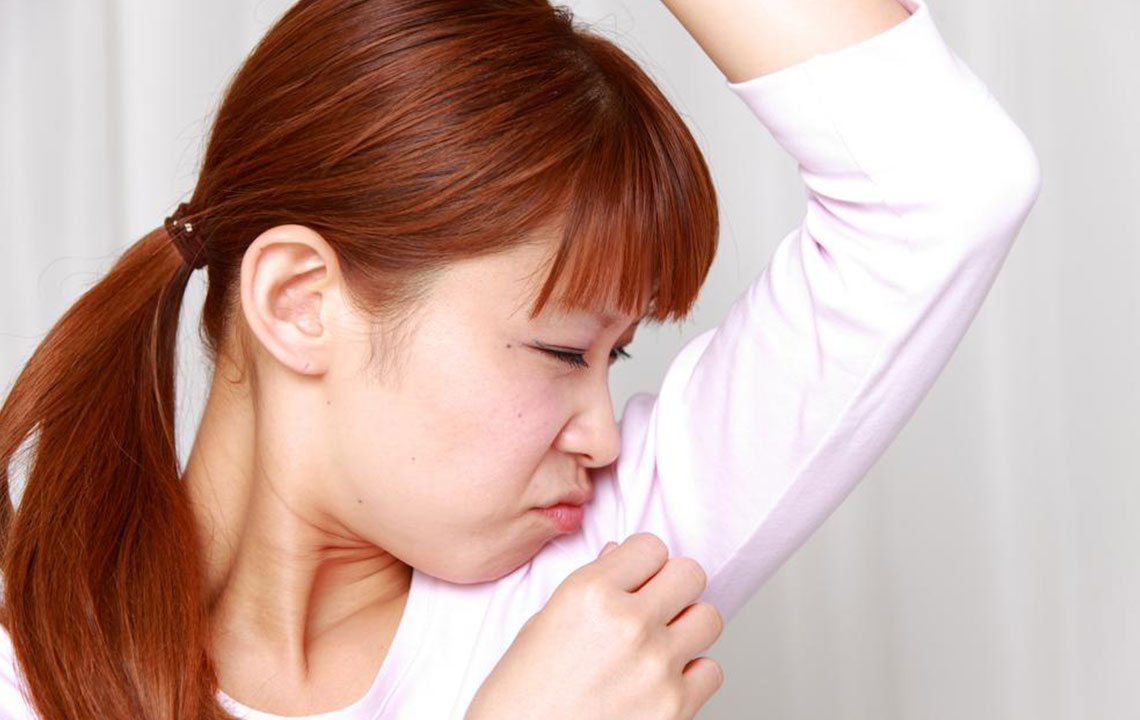What Causes Body Odor and How to Prevent it

Smelling bad can be embarrassing, and you’ll put the people around you in an awkward position. While mild body odor is something all of us experience, constant body odor, and too much of it, is not a good thing.
What are the causes of body odor?
While not having a bath regularly is one of the most basic reasons, there are a few other underlying causes that might contribute to the bad odor as well.
Excess consumption of spicy foods
Been indulging in too much spicy food? Your extra spicy street food and dishes could be one of the causal factors of body odor. You are what you eat. While this is an arguable statement, it does have a grain of truth to it. The spice you eat, when broken down, causes your body to release gases that contain sulfur. These sulfur gases are released through the pores of your skin, the smell of body odor.
Does that mean you should stop eating spice? Not at all. Just lower the intake of spice, drink plenty of water through the day especially after a spicy meal, and avoid spicy foods the day before a party or date. A hot shower and deodorant can help too.
Excess alcohol consumption
When you drink alcohol, it goes into your bloodstream and comes out through your urine, as well as your sweat. Your body considers alcohol to be a toxin. Due to this, it looks for ways to eliminate the alcohol, so while you do urinate a lot while you drink, your body tries to expel the alcohol through your sweat and breath too.
You must drink a lot of water to flush out the alcohol. Also, when you drink next time, drink at a slow pace, or have non-alcoholic drinks in between your alcoholic ones.
High stress levels
When you’re stressed, you sweat, and the sweat that is released when you’re stressed is one of the smelliest. It comes from the apocrine glands, and while it is odorless at first, it starts to smell bad as soon as it mixes with the bacteria on your body. The result? A pungent odor from your skin. Also known as stress sweat, it isn’t like the other types of sweat. For example, after exercise, you sweat out water and electrolytes—they don’t smell half as bad as sweat due to stress.
Not washing your clothes
This one is a no-brainer. You can’t wear dirty clothes and not expect to smell bad. You need to make sure you wash your clothes regularly, especially your inner wear. A lot of people don’t bother changing their underwear as well, and this shouldn’t be the case. Your clothes and underwear are in close contact with your body. Make a habit of changing and washing them often.
Symptom of diabetes
Diabetes, especially if left untreated, can pave the way for a condition called as diabetic ketoacidosis. Here, there is a buildup of ketones, because the body breaks down fat to use as fuel, due to the lack of insulin. This buildup of ketones can lead to bad body odor.
How to stop body odor?
You know the causes, so now you’re probably wondering how to stop body odor.
- Change your diet. What you eat plays a major role in how you smell. Incorporate a lot of fruits and vegetables. However, avoid eating a lot of onions, garlic, and broccoli. Avoid foods that have too much spice as well as fats.
- Wear clothes that are made from breathable fabrics. Make sure your underwear is made from cotton or other fabrics that absorb sweat. Also, make sure you wash your clothes after use. Don’t repeat your clothes without washing them.
- Shaving your underarms can help. Since bacteria and fungi thrive in warm and moist conditions, your underarms make for an excellent breeding ground for these bacteria and fungi.
- Apple cider vinegar can help to stop body odor by preventing the growth of bacteria and fungi. You can apply apple cider vinegar directly to your underarms before a bath for about 30 minutes before rinsing it off, or add a few drops of apple cider vinegar to your bathtub and soak in it for a few minutes.
- Lime juice has the same effect as apple cider vinegar, and lime has a great fragrance, so you’ll smell good too. The acid in the lime juice can inhibit the growth of fungi and bacteria, and help the bad odor that they cause.
- If you feel like you’re too stressed, work on methods that will help you de-stress. Get out for the weekend, indulge in some fun activities or try some yoga. Stress can cause body odor, and de-stressing can help to stop body odor.
- Take a bath, regularly. This is perhaps the most obvious way to stop body odor. Ask your doctor for an antibacterial or antiperspirant soap or body wash. Also, stack up on skin-friendly deodorants.
Suffering from body odor can be frustrating. By trying to make the above changes you’ll see a noticeable difference.


